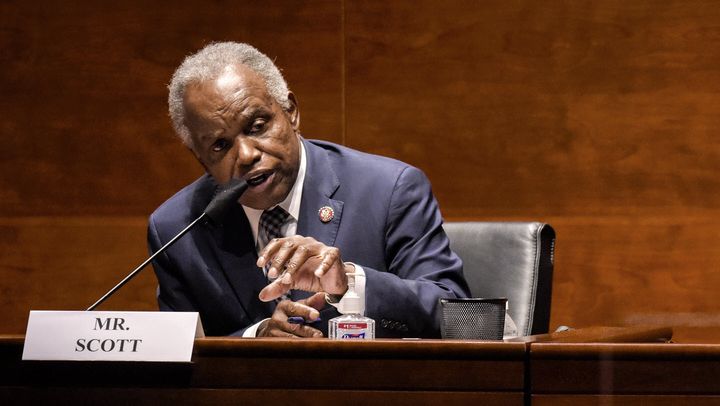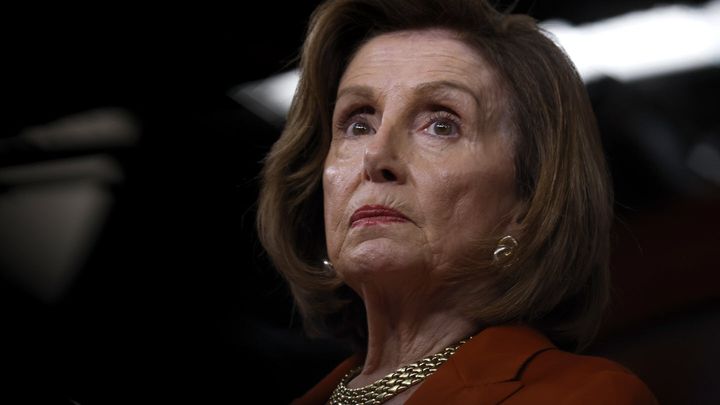With Rep. Collin Peterson (D-Minn.) going down in defeat to former Minnesota Lt. Gov. Michelle Fischbach, the top Democratic spot on the House Agriculture Committee is up for grabs for the first time since 2006. The next leader of the committee will have the power to steer House Democrats on things like crop insurance, agricultural subsidies, and rural development, but they will also be able to advance another category of bills: those dealing with regulation of financial derivatives.
The House and Senate agriculture committees were given regulation over derivatives in the 19th Century when farmers first started trading crop futures in order to stabilize prices, and the committees held onto their jurisdiction through the creation of the Commodities Futures Trading Commission (CFTC), which regulates the unfathomably massive U.S. derivatives markets. That means the committee routinely votes on bills that affect the balance sheets of Wall Street firms like Goldman Sachs far more than they impact the growing of crops or the rearing of livestock.
Derivatives markets are comprised of financial instruments built atop other assets, like collateralized debt obligations, interest rate swaps, and white sugar futures. They can be used for hedging to limit risk, but they are also routinely used for pure financial speculation.
The representative next in line for the chairmanship is one of Wall Street’s most reliable Democratic allies, Rep. David Scott of Georgia’s 13th Congressional District. Scott announced his interest in the position the day after Peterson was defeated, though Rep. Jim Costa (D-Calif.) has said he is also vying for the seat.
Scott, the chair of the Ag Committee’s Commodity Exchanges, Energy and Credit Subcommittee and a member of the House Financial Services Committee, has a history of partnering with Republicans to deregulate derivatives markets. In 2013, the Agriculture Committee passed a slate of seven Republican-sponsored bills designed to roll back the derivatives regulations that Congress had passed three years earlier in the Dodd-Frank Wall Street Reform and Consumer Protection Act. Scott signed on as a co-sponsor to all seven of the Republican bills. While other Democrats signed onto some of the bills, Scott was the only Democrat to co-sponsor all of them.
Most of the bills passed the Agriculture Committee by voice vote, but the most controversial of them, the Swaps Regulatory Improvement Act, was put to a vote. The bill was aimed to gut Section 716 of Dodd-Frank, which required federally-insured depository institutions to “push out” their derivatives activity to non-bank affiliates in order to protect taxpayers in case their trades blow up and threaten their ability to meet their liabilities. Under the bill, which was written in part by Citigroup lobbyists, all derivatives trades besides some that are based on asset-backed securities would be exempted from the push-out requirement.
Scott was one of six Democrats who joined Republicans to pass the Swaps Regulatory Improvement Act in the committee by a vote of 31 yeas to 14 nays. Costa voted “no.” The bill was eventually rolled into a government funding measure and signed into law by President Obama.
Before the vote, Peterson, then the ranking Democratic member, said the bill reminded him of Congress’ 1999 vote to repeal Glass-Steagall, telling his colleagues, “you can vote any way you want, but this could come back and haunt you.”
“You’re putting taxpayers on the hook, and if you wanna do that, fine,” said Peterson. “But I mean, you know, when I, when a lot of us were here, we hadn’t paid enough attention and this thing blew up on us,” Peterson added, referring to the government bailouts in 2008-09 that followed years of financial deregulation.
Scott was one of the Democrats in 2012 who signed a letter that threatened to withhold regulators’ funding unless they ensure “flexibility” for banks in their implementation of the Volcker Rule, a provision of Dodd-Frank that was intended to prohibit federally-insured commercial banks from making certain kinds of speculative trades with their own accounts. In June 2019, Scott signed a letter urging financial regulators to roll back a rule requiring banks to put aside margin when making derivatives transactions among their affiliates in order to protect insured banks from losses stemming from the activities of their riskier affiliates.
Another Republican bill Scott co-sponsored was H.R. 4695 in 2017, which would direct regulators to reduce the capital that banks that are clearing members of derivatives clearinghouses must hold against risks. Americans for Financial Reform, a nonprofit watchdog group, wrote in a letter opposing the measure that the bill would “increase the dangers of a public bailout of the derivatives market due to the failure of a major clearinghouse.” The bill was supported by Intercontinental Exchange, CME Group, Commodity Markets Council, and FIA.
Financial reform advocates have been urging Democrats on the Agriculture Committee to close loopholes in the CFTC’s regulations, but that’s not likely to happen with Scott at the helm. And in a divided Congress it’s possible that more deregulatory measures could be advanced and presented to President-elect Biden, who has a long history of supporting financial deregulation.
Scott’s top career donor according to the Center for Responsive Politics is the Atlanta, Georgia-based Intercontinental Exchange, the financial exchange company founded and run by Sen. Kelly Loeffler’s (R-Ga.) husband Jeffrey Sprecher. Intercontinental Exchange’s PAC has given Scott $60,000, while its executives and employees have given him another $44,850. Sprecher and Loeffler have both donated to Scott.
In its most recent quarterly lobbying disclosure, Intercontinental Exchange reported lobbying Congress on “regulation of the trading system for agriculture, energy and other futures” and “legislation that would change the regulatory structure for exchanges and trading of futures, including reauthorization of the Commodity Trading Act, and the Customer Protection and End User Relief Act.” The Customer Protection and End User Relief Act was renamed the Commodity End Users Relief Act, and in 2017 Scott was one of just 7 House Democrats who voted to pass it. The bill placed a freeze on the CFTC’s budget and established onerous new cost-benefit analysis requirements for the agency before they can take regulatory actions.
One issue impacting Intercontinental Exchange that could very well come before the Agriculture Committee is regulation of digital derivatives built atop assets like Bitcoin. Intercontinental Exchange owns Bakkt, an exchange where people can buy and sell futures and options tied to cryptocurrencies, in-game currency, loyalty points acquired through reward programs, and other digital assets. Kelly Loeffler was the CEO of Bakkt before she was appointed to the Senate in December 2019.
Several of Scott’s other major donors could also benefit from derivatives deregulation.
The American Bankers Association, which has given Scott $92,000 through its PAC, represents big banks that hold a huge portion of derivatives contracts. “Four large banks held 86.7 percent of the total banking industry notional amount of derivatives” in the first quarter of 2020, according to the Office of the Comptroller of the Currency. Those banks—JP Morgan Chase, Goldman Sachs, Citibank, and Bank of America—are all American Bankers Association members. Bank of America’s PAC has given Scott $72,000.
CME Group, the world’s largest derivatives exchange company, which operates the Chicago Mercantile Exchange, has given Scott a total of $56,000 through its PAC since 2009. The Securities Industry and Financial Markets Association, a trade group that supports limiting CFTC power and supported the Swaps Regulatory Improvement Act, has given Scott $43,000. The PAC of Depository Trust and Clearing Corporation, which provides clearance and settling services for derivatives markets, has given Scott $20,350. In 2013 and 2017, Scott staffers took trips to tour the New York Stock Exchange and meet with S&P Global executives that were sponsored and paid for by the Depository Trust and Clearing Corporation.
Peterson has endorsed Scott for the chairmanship, saying in a letter to Scott that he is “a supporter of the seniority system” and that it would be an “important milestone to have the first African-American Chair.”
Scott’s office did not return Sludge’s request for comment for this article.
Read more from Sludge:



